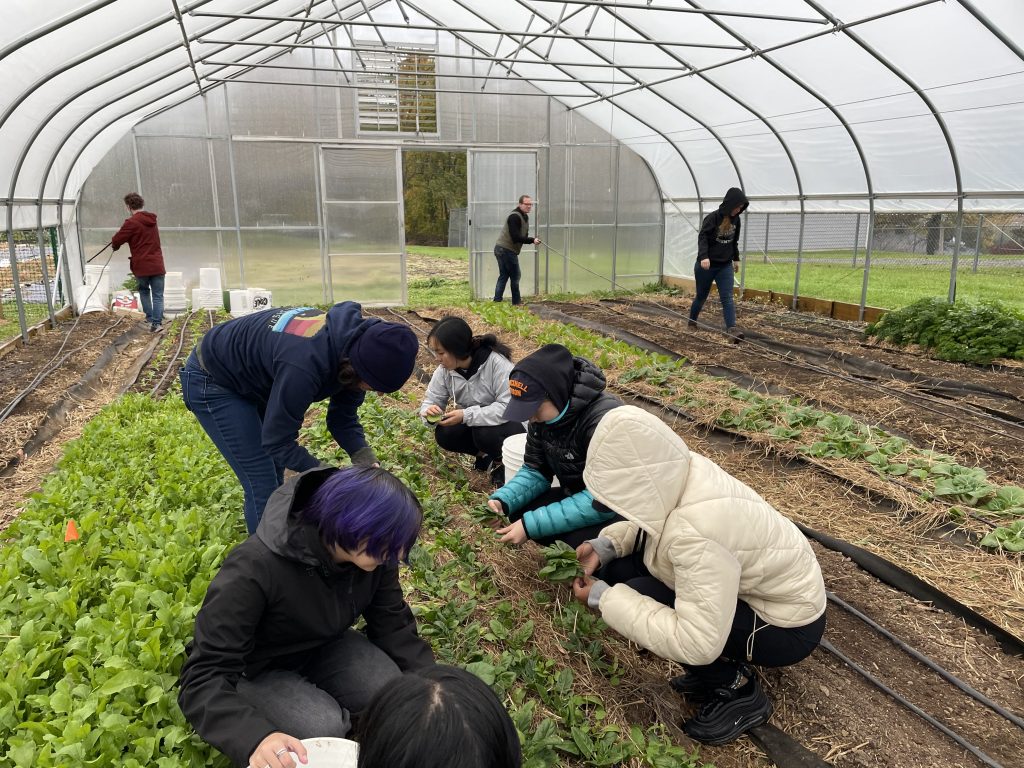Our Language Has Changed. Why?
The biggest change in the language is the addition of points 5 and 6 in the CBL course definition and points 6 and 7 in the CEL course definition. These additions come from the work of the anti-racist pedagogy group, run through the TLC, which met in Fall 2022. The group recognized that the definitions were missing any anti-racism focus and goals, which is a key part of community engaged learning. As a result, members of the TLC course drafted a definition, then took suggestions from current CEL/CBL practitioners as well as members of the Engaged Bucknell Coordinating Council (EBCC).
Additionally, a reminder was added to encourage CEL/CBL instructors to comply with IRB guidelines on research involving human subjects.
Bucknell defines a Community Based Learning course as one that:
1. provides students with organized and meaningful learning experiences in community settings outside the classroom to enhance understanding of information, concepts, and theories related to the course or to build skills in the discipline.
2. focuses a significant portion of instructional time on the community settings where students are learning, researching, or observing social or environmental issues at work.
3. involves structured opportunities for students to reflect critically on the connections between their community experiences and course content; examples of such opportunities include individual writing, class discussions, group projects, or oral interviews.
4. includes attention to the cultivation of students’ sense of civic responsibility, as well as to knowledge/skills needed for active civic and community engagement.
5. Prepares students to become community-engaged practitioners and researchers with a critical awareness of racism and other forms of social inequity and oppression.
6. Trains students to interrogate and reflect on their own personal and cultural biases and develop their capacity to repair human relations when/if ruptures do happen.

Bucknell defines a Community Engaged Learning course as one that:
1. requires students to engage in activities that clearly serve the common good by partnering with a community group in a way that is mutually beneficial.
2. addresses a priority in the community (campus, local, regional, global) through organized activities.
3. demonstrates a clear connection between the nature of the community-engaged activity and the course content and/or disciplinary field.
4. promotes increased civic awareness and community engagement.
5. requires that each student engage for a significant number of hours with a community partner or government agency.
6. Prepares students to become community-engaged practitioners and researchers with a critical awareness of racism and other forms of social inequity and oppression.
7. Trains students to interrogate and reflect on their own personal and cultural biases and develop their capacity to repair human relations when/if ruptures do happen.
8. Involves structured opportunities for students to reflect critically on the connections between their community experiences and course content; examples of such opportunities include individual writing, class discussions, group projects, or oral interviews.
Instructors are also reminded to comply with the IRB guidelines on research that involves human subjects, specifically to complete the CITI training where appropriate. Information is available at https://myweb.bucknell.edu/academic-areas/provost/institutional-review-board/training-requirements)

Why Community Engaged Learning?
Students:
- Gain an adaptable and applicable skill set
- Understanding complexity, problem analysis and solving, and critical thinking
- Collaboration, leadership, and communication
- Learn personal efficacy and social responsibility
- Grow intercultural competence and values
- Develop a greater sense of belonging on campus and in the community
- Expand educational and professional networks
“As a student, having the CEL courses not only helps us improve important skills, but also is extremely important during the job search and interviewing processes. It seriously makes a difference!” – Hannah Holmes ’23
Faculty:
- Promote active learning
- Create an interactive and inclusive learning environment
- Apply knowledge and skills to in-class discussions, large class projects, and eventually research and publication
- Build relationships and create opportunity for future collaboration